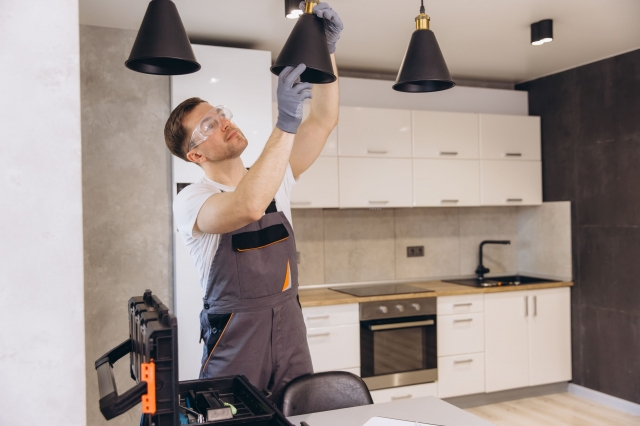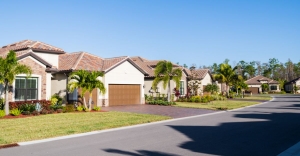Today, smart home technology is everywhere. Many households invest in it to improve their day-to-day lives. But if you've ever tried to install one yourself, you know it's not always as simple as plugging it in. That's because many smart upgrades need more than just Wi-Fi. They need proper wiring, safe connections, and sometimes a bit of panel work. So, how do you bring all that convenience into your home without turning it into a weekend project gone wrong?
In that case, you need a residential electrician. A licensed pro can install these smart home upgrades the right way while guaranteeing safety, cleanliness, and long-term reliability.
Here are a few smart home upgrades a residential electrician can install to help make your home safer, smarter, and easier to live in.
Smart Switches and Dimmers for Your Lighting Fixtures
Smart lighting goes far beyond screwing in Wi-Fi-enabled bulbs. For a cleaner setup and more control, you'll want smart switches and dimmers installed directly into your walls. A residential electrician can handle the electrical wiring safely to ensure everything follows the national electrical code and works with your existing electrical system.
Using smart switches, you can control lighting remotely, schedule routines, and adjust brightness based on the time of day. Some setups even allow for motion-sensing features or geo-fencing, where lights turn on when you arrive home.
If you're planning to integrate smart lighting throughout your home, a master electrician is essential, especially for multi-way switch configurations or older homes with outdated electrical systems. A trusted residential electrical service like MartinCo Electrical can walk you through your options and install your system without cutting corners.
Smart Thermostats for Better Energy Efficiency
Smart thermostats are one of the most popular and cost-effective upgrades you can make. But not all systems are plug-and-play, especially if your HVAC system has complicated wiring or if you live in a home that wasn't designed for modern thermostats.
An electrician ensures that your thermostat is correctly connected to your furnace, air conditioning unit, and Wi-Fi. They'll also make sure it's drawing the right voltage, which is something most DIY installs overlook. Once it's up and running, you can program temperature schedules, track energy usage, and even control the system from your phone.

Smart Doorbells, Cameras, and Locks for Tighter Security
Smart security systems often look simple, but their installation isn't always straightforward. Whether you're setting up a wired doorbell camera, motion-activated floodlights, or smart locks, each of these requires stable power and seamless connectivity.
A residential electrician can ensure your outdoor security systems are wired for long-term reliability. No one wants to deal with flickering cameras or devices that constantly disconnect due to low voltage. An electrician can also install weatherproof outlets or run hidden wires through walls or ceilings, which makes your setup more secure and aesthetically clean.
For smart locks, especially those integrated with hardwired systems or connected to alarm panels, professional electrical installations can prevent issues with short circuits or compatibility.
USB Outlets and Smart Plugs Throughout the House
For big households with multiple family members, charging multiple devices all at once is unavoidable. Thus, this can quickly turn into cable chaos. Installing outlets with built-in USB ports can help reduce clutter and free up regular sockets for other uses. A residential electrician can replace standard wall outlets with smart versions that include USB-A or USB-C ports.
Want more control over your smart home design? Smart plugs allow you to switch off appliances remotely, set timers, or monitor power usage. While many smart plugs are designed to be plug-in ready, skilled electricians with their power tools can install in-wall options that don't add bulk or stick out from the wall.
A Whole-House Surge Protector
A power surge can ruin everything from your television, electric stoves, water heaters, to your smart refrigerator. With the number of smart devices in homes increasing, protecting them is more important than ever.
A whole-house surge protector is installed directly into your electrical panel and shields your appliances and electronics from voltage spikes. This is not a DIY job. A master electrician is required to safely access your main panel and install the device according to the safety electrical codes.
This is one of those electrical work upgrades you don't notice until it saves you thousands of dollars. It quietly works in the background to give you peace of mind every time there's a lightning storm or power fluctuation.
A Smart Panel for Better Monitoring and Control
A smart electrical panel gives you insight into how your home uses electricity. You'll be able to see which appliances use the most energy, get alerts if something isn't working right, and even shut off circuit breakers remotely.
While smart panels are still gaining traction, they're ideal for homeowners who want full visibility and control over their home's power. However, installing one requires serious expertise. A residential electrical contractor will need to replace your existing panel, transfer circuits, and ensure everything is calibrated correctly.
Key Takeaway
Smart home upgrades should work with your lifestyle, not against it. A licensed residential electrician brings the know-how to make each upgrade seamless and reliable, and ensure they function exactly as they should, day after day. Investing in professional help is what turns a “smart” home into a smartly designed one.






